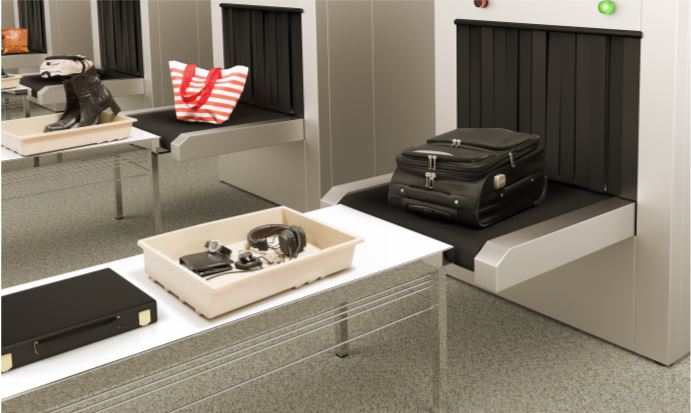I have been fortunate enough to travel far and wide in my career to film and photograph some stunning locations around the globe. Without fail, on the way home there is always the thought in the back of my head that going through airport security might somehow erase my data, it hasn’t happened yet but it could…
While traveling through airport security it is important to make sure any hard drives or devices containing any memory storage are sent through the X-ray machine only. Hard drives are not affected by X-ray light. However, they can be affected by metal detectors.
Over the years I have tried various ways to make my travels as seamless as possible and I have settled on a technique that ensures my electronics remain safe and secure while meeting the protocols of airport security.
Contents

Can X-ray machines damage hard drives?
In short, no. X-rays are high-frequency electromagnetic waves that can pass through objects. They can cause damage to soft cell structures but don’t cause any damage to metals or the other materials found inside a hard drive.
Can metal detectors damage a hard drive?
In short, yes. A metal detector works by changing electrical current into magnetism and back again. A transponder coil of wire is powered with a battery, this electrical force then magnetizes metal objects, the magnetic force in the metal object then works in reverse on the receiver coil creating an electrical current which powers LEDs or a loudspeaker as an indicator of metal.
This is problematic for hard drives because their data is stored on a thin film of ferromagnetic material. Though precautions are taken to prevent the film from being magnetized by outside forces a metal detector could generate enough magnetism to corrupt the data stored on the disk.
How to pack a hard drive for airport security.
I highly recommend a hard case when traveling through an airport. In fact, there is one case in particular that I use and that is the Peli case 1510. It is FAA maximum carry on size and can house all of your electronics safely and securely, and is useful beyond the plane journey out in the field. Even for a vacation, I take this case now.
What makes it so good for hard drives is that they are very well protected by the foam lining and also accessible with some good preparation. You can put a good lock on these cases too and know that no one is going to be able to pickpocket your belongings unless they have an angle grinder handy.
The other thing to consider when packing hard drives for airport security is how easy it is to access them. Security staff will ask you to remove laptops and tablets from your case because of the solidity and complex nature of them it makes them hard to identify any potentially dangerous items stored underneath. For this reason, I pack hard drives on their side in the upper right side of the case. This is so they are accessible should airport staff want to take a look and also when you wheel the case upright there isn’t excessive weight on them.
This can be taken into account when packing any type of luggage, keep your drives near the top, and stored upright or on their side.
NEVER PUT HARD DRIVES IN CHECKED LUGGAGE.
If you are about to embark on your first trip watch out the window when they load the plane and you will bear witness to airport luggage handlers, presumably they are all Olympic athletes training for shotput. They will hurl your baggage around like nobody’s business. Keep your hard drives in your carry-on bag so that you can be sure that they don’t get damaged in the melee.
Does airport security check hard drives?
It is not likely that you will be asked to show the contents of a hard drive at airport security unless they have a very high suspicion that you are carrying illegal content, but this is usually a job for customs in the destination country as it is unlikely that you will be carrying a file that could cause a problem during a flight.
Depending on what country you are visiting you may be legally obliged to show them if they request it. In others, they might need a warrant to search your data. I highly recommend researching the country you are visiting and checking to see if anything you store on your hard drive or computer could get you into hot water.
Conclusion.
99.9% of the time taking a hard drive through airport security is a seamless process. The way airport security is designed means that the hard drive in laptops or alone gets scanned outside of your bag and only goes through an X-ray scanner. Therefore so long as your packing of the drives is adequate there is little to no reason that a hard drive should get damaged or corrupted while heading airside.
